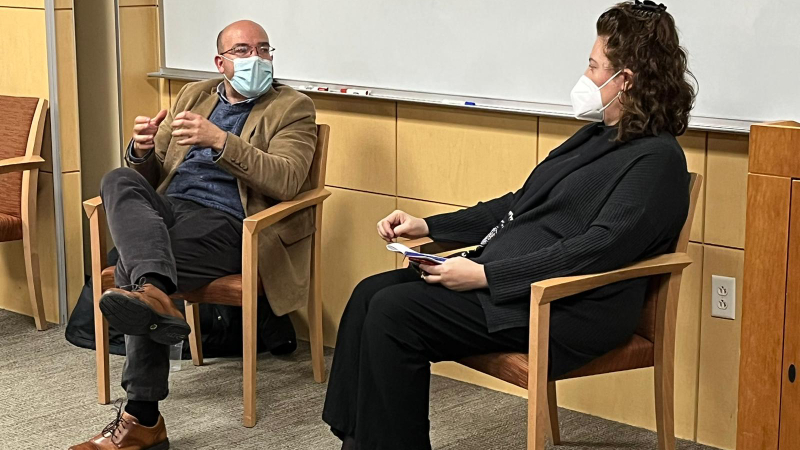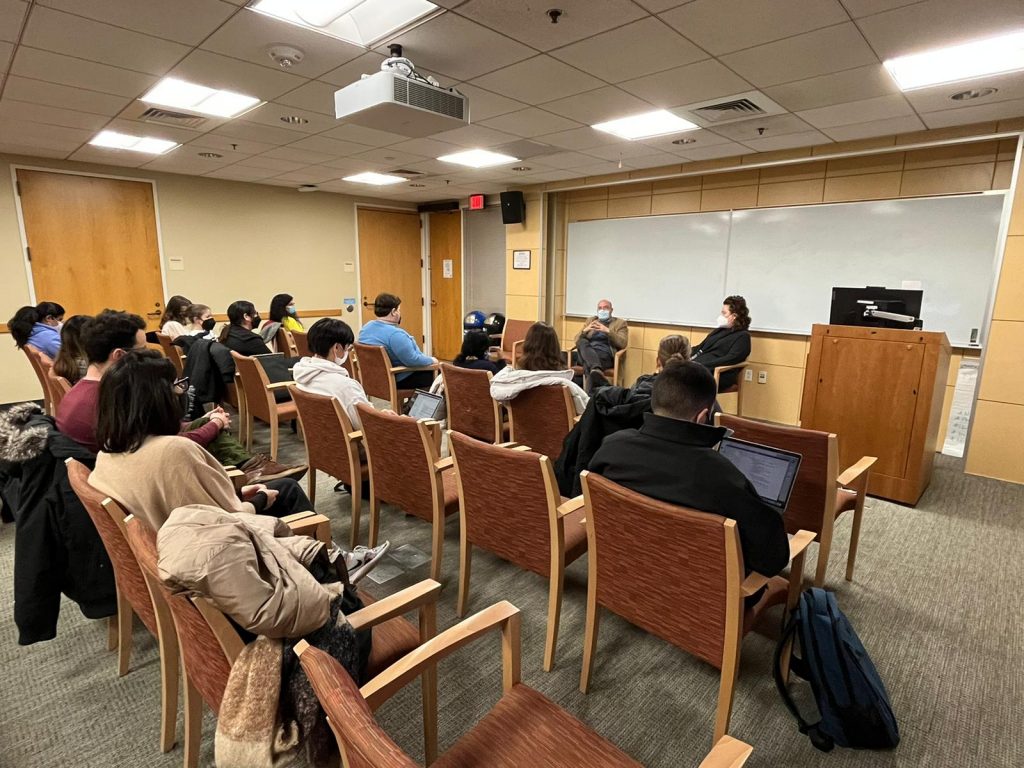
The Fletcher School’s Elizabeth Prodromou and U.S. Naval War College’s Nick Gvosdev discuss the Russian invasion of Ukraine
By Alex Avaneszadeh, MALD 2023 Candidate, The Fletcher School
On March 3, 2022, The Russia and Eurasia Program at the Fletcher School, in collaboration with the Fletcher Initiative on Law and Diplomacy (RLD), hosted Dr. Nick Gvosdev, Professor of National Security Affairs at the U.S. Naval War College to discuss the impact of Russia’s invasion of Ukraine on NATO and the European security architecture. The discussion was chaired by Professor Elizabeth Prodromou, Visiting Associate Professor of Conflict Resolution and Faculty Director of Fletcher RLD.
To kickstart the discussion, Professor Prodromou asked Dr. Gvosdev, “what do you see as Putin’s endgame in this war?”
Dr. Gvosdev began his remarks by underlining that Putin’s overarching vision was to “put the Soviet Union back together,” as it reflected Putin’s aim to recreate the traditional empire and reinstate Russia’s “civilizational space,” which Ukraine does not want to be a part of. However, Dr. Gvosdev noted that although the United States had a strategic argument for NATO enlargement, there was a lack of serious debate in the United States over the type of obligations that the alliance’s expansion would create.
Nevertheless, the fundamental tension between the West and Russia since the Soviet Union’s collapse has been Putin’s rise to power, his “classical realist” approach to geopolitics, and the Euro-Atlantic world not accepting that there was an end to its expansion. A significant tipping point, Gvosdev noted, was Ukraine’s 2014 EuroMaidan revolution, kickstarting Russia’s annexation of Crimea as an implicit message from Putin to “stop pressing in on us.”

“Why choose the military option now?,” asked Professor Prodromou, referring to Russia’s invasion of Ukraine. Dr. Govsdev responded by stating that “Russia is peaking at this point, and if ever Ukraine will be invaded, it has to be now,” implying that its political and military capabilities are at Russia’s highest point of leverage, and that the opportunity to take effective action against Ukraine would likely not come again in the future.
Dr. Gvosdev further noted one crucial incorrect assessment by the United States in the 1990s that Russia was no longer a great power unless it reformed to the West.
Therefore, in addition to the lack of serious internal debate in the United States over NATO’s expansion, Russia’s gradual rise as a non-Western-reformed peer competitor proved the United States’ assessment of Russia to be wrong. In regard to NATO’s expansion, Dr. Gvosev also posed the questions: “could there have been treaties to guarantee neutral status?” and “did we rush the expansion of NATO?”, as opposed to America’s casual approach to other countries’ security, as in the example of Georgia’s misbelief that the United States would come to their aid when Russian troops moved in to occupy Georgian territory.
In wanting to expand on the various aspects of the Russia-Ukraine war, Professor Prodromou pivoted the discussion to what role religion plays in the current conflict. Dr. Gvosdev began by highlighting the effect of a separate Ukrainian Church and the threat that it posed to Russian hegemony in its “civilizational space.” He explained that this partly accounts for Russia’s justification and narrative behind its invasion of Ukraine as “resistance to evil forces” that threaten traditional values. However, if this dispute is in fact civilizational and/or existential, it will be “hard to come up with a compromise,” said Dr. Gvosdev.
As the conversation concluded, Dr. Gvosdev highlighted that the end condition of the war is based on Russia’s threshold for casualties (though likely higher than the United States’), and that Putin’s demise may be possible, but the probability is low. Nevertheless, the United States is trying to pivot much of its focus on the Indo-Pacific, hoping that Europe can begin developing its own forces to alleviate NATO’s role in certain conflicts.
